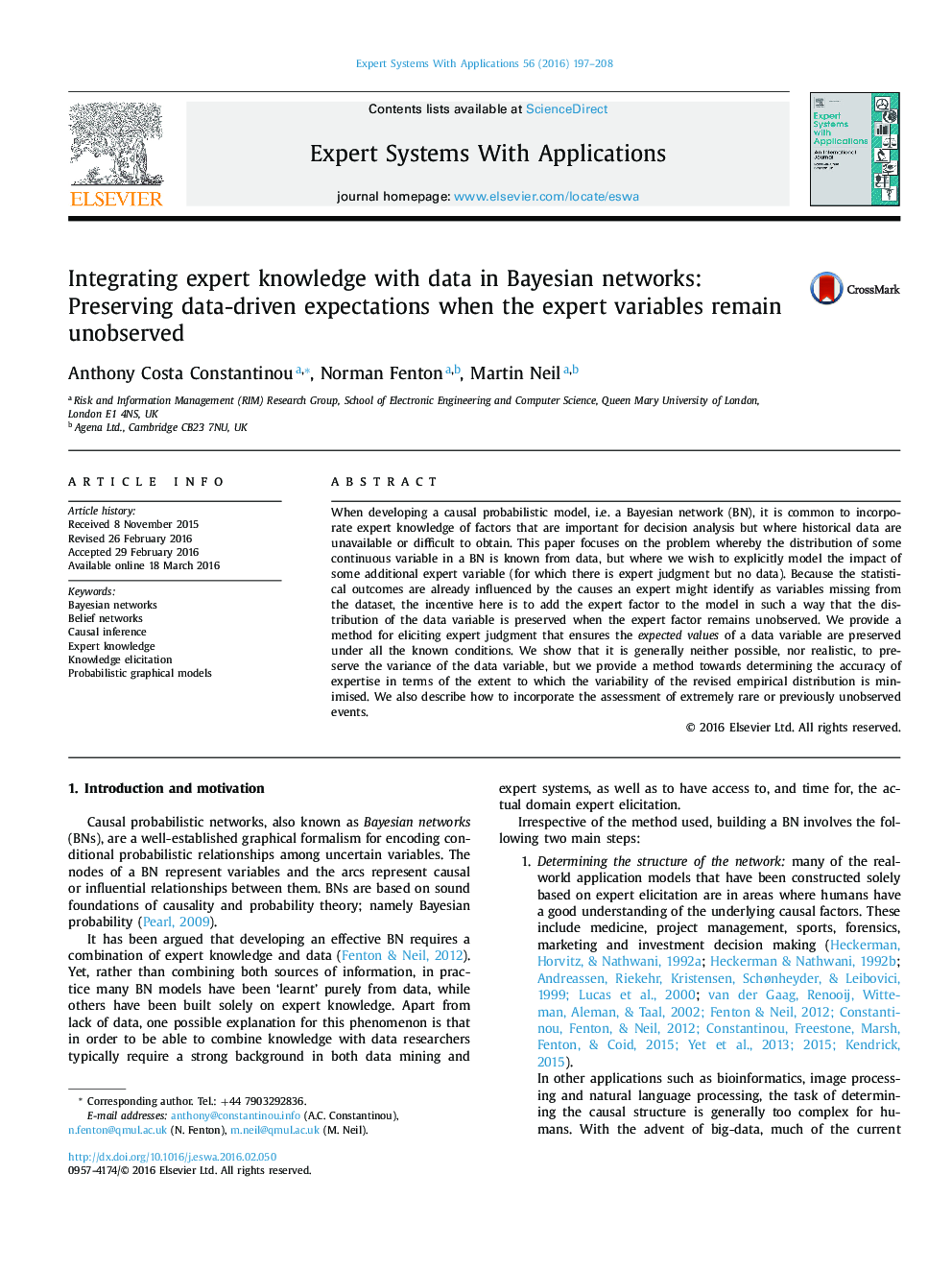| Article ID | Journal | Published Year | Pages | File Type |
|---|---|---|---|---|
| 382332 | Expert Systems with Applications | 2016 | 12 Pages |
•A method for integrating expert knowledge with data in Bayesian networks.•Preserves the data-driven expectations when the expert variables remain unobserved.•Supports the incorporation of extremely rare or previously unobserved events.•The method extends towards determining the accuracy of expertise.
When developing a causal probabilistic model, i.e. a Bayesian network (BN), it is common to incorporate expert knowledge of factors that are important for decision analysis but where historical data are unavailable or difficult to obtain. This paper focuses on the problem whereby the distribution of some continuous variable in a BN is known from data, but where we wish to explicitly model the impact of some additional expert variable (for which there is expert judgment but no data). Because the statistical outcomes are already influenced by the causes an expert might identify as variables missing from the dataset, the incentive here is to add the expert factor to the model in such a way that the distribution of the data variable is preserved when the expert factor remains unobserved. We provide a method for eliciting expert judgment that ensures the expected values of a data variable are preserved under all the known conditions. We show that it is generally neither possible, nor realistic, to preserve the variance of the data variable, but we provide a method towards determining the accuracy of expertise in terms of the extent to which the variability of the revised empirical distribution is minimised. We also describe how to incorporate the assessment of extremely rare or previously unobserved events.
